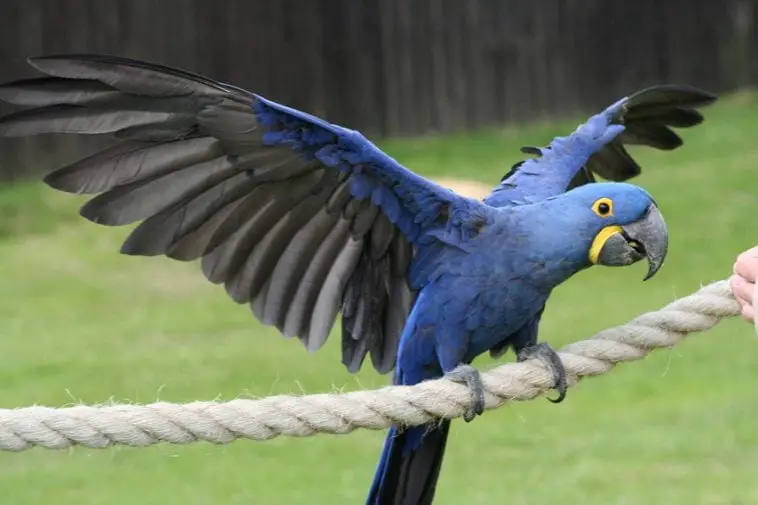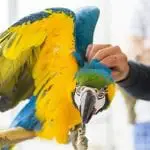How do you know if a bird is a suitable pet for you and your family? That is a common question from new bird sitters. In choosing for the right pet bird, there are factors to consider for you to know if it is meant for you. You need to reflect if you are ready emotionally, physically, and financially to accept the responsibility of becoming a bird parent. This article will give you tips on what to do to have a worthwhile experience with your bird.
Factors to Consider in Choosing a Pet Bird

- Choose the right size that is suitable for you
In choosing the right bird for you and your family, you may need to consider the size. The larger the size, the more commitments that you may need to give them. If you are still new to taking good of birds, it is recommended to choose for a small-medium one first so that it will be easier to maintain it. The size of your bird will determine the size of the cage to use as well as the amount of food to give them.
- Determine the behavior and temperament
Do you prefer a bird that is clingy, or you prefer a bird that is independent? Their personality is a big factor, especially if you have kids. If you know the personality of the bird that you are getting, it is easier for you to form a bond with them so that you can tame them easily. Their behavior can also be trained; you’ll just need to find time taming them.
- Budget and Finances
Taking them into captivity is quite expensive. If you are to buy a large cage with its accessories, it may cause you a large amount. You may also a lot certain amount for their food supply as well as for their nutrients and minerals. Some bird species have a long lifespan; that is why you may need to consider the amount of money that you will be spending while you are in your bird’s company.
- Time Commitments
Birds require time from their owners. If you can commit at least 2 hours of interaction for playtime and exercise, you can be sure that your bird will grow healthily. Aside from the time designated for play, you should be able to have time to clean their cages as well as the accessories in there. If you don’t give them time, there is a possibility that they will develop some behavioral problems such as screaming and feather plucking.
- Nutrition and Maintenance
Each bird species require specific diets, before giving your bird with a preferred diet, you need to conduct research for you to know if that kind of diet really suits your bird. There are moments wherein you need to consult a veterinarian often just to be sure that the one that you will be feeding your bird will truly benefit them.
What Kind of Bird to Choose

- If you don’t like a mess
If you don’t like too much mess, you may need to choose a small bird species such as parakeets, canaries, finch, green-cheeked conure, lovebirds, and a cockatiel. To lessen the mess, clean their cage on a daily basis so as to maintain cleanliness.
- If you don’t like loud screaming birds
If you prefer birds that are quieter than do not scream, you may need to choose parrots, canaries, cockatiels, Senegal parrot, and pacific parrotlets. Birds have a tendency to become loud if they are bored and if they seek attention.
- If you don’t have much space
Small to medium-sized bird requires a medium cage for them to have space whereas large bird requires a large cage. You may need to decide where to place the cage, whether indoors or outdoors, as long as the place is safe and suitable for them. If you don’t have much space, it is important to think twice because you cannot just contain a bird in a place where it can’t move freely.
- If you don’t like aggressive birds
Large birds tend to be aggressive when they mature, and these types of birds usually bite if they are not in the mood. If this concerns you, you may choose to have a bird that is a small-medium sized bird because these are the type that is more sweet with only a little beak strength. They can still bite, but not they won’t cause too much harm.
- If you prefer a talking bird
If you prefer a talking bird, you may opt for parrot species such as Amazon parrots and African gray parrots. It is not a 100% guarantee that these types of parrot species would talk, but when you would talk to them often or if you will let them hear music, there is a chance that they’ll learn to talk often.
- If you are concerned if your bird will get along with other pets that you have
To promote harmony among your pets at home, adult supervision is a must. You may need to secure your bird in a place where they won’t be chased by your pets. It takes time for your bird to have a harmonious relationship with your cat and dogs, training is usually the way to do it, but in the meantime, you need to protect your bird because there is no way for them to protect themselves when they are cornered.
Tips in Getting a Bird
- If you are to choose a bird to be taken into captivity, it is advisable to avail from breeders or from pet shops because these birds are already acclimated to be taken into captivity. It is not advisable to take directly from the wild because there is already a conservation act that protects wild birds. Wild birds tend to be aggressive and are more difficult to tame than birds that were bred in captivity.
- Before deciding to take a captive bird, you may need to take into consideration the health of each member in your family. Be sure that there is no one who is allergic to furry mammals.
- Birds are naturally active and curious; it is important to give them time out of the cage once in a while for them to explore and to move freely. A spacious room free from your domesticated animals is ideal.
- Birds have weak lungs; that is why they are quite sensitive when it comes to the air quality, so if you let them stay indoors, you may need to invest in air purifiers just to make sure that the air that they breathe in is clean.
- Even though your bird looks healthy, it still needs veterinarian care to ensure that they are always in good condition. Your veterinarian will conduct checkups on a monthly or quarterly basis, plus when you see unusual behavior that they show, you must consult experts so as to avoid risking the life of your pet bird.
Final Thoughts
In choosing for the right kind of bird that will suit your family, a little research goes a long well, especially if it is your first time to have a bird pet. You must go through with all the factors needed to be a successful bird owner.


